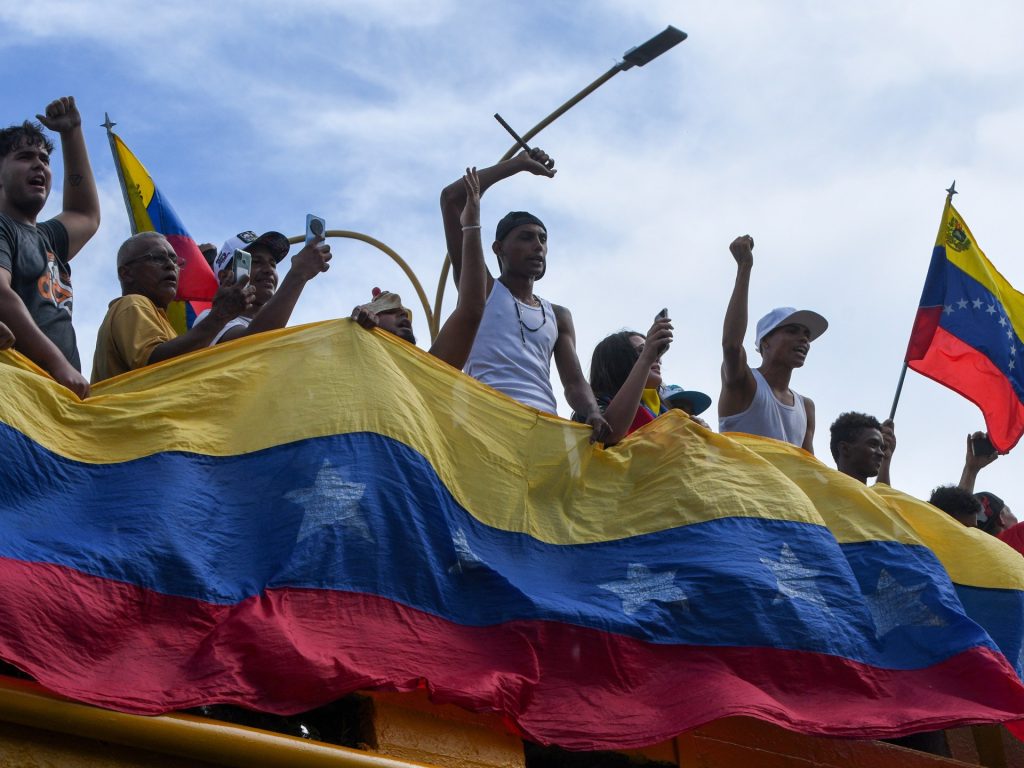The Maduro government said it had released a total of 1,515 people arrested during its post-election crackdown.
Venezuelan Attorney General Tarek Saab has announced the release of 146 demonstrators arrested during anti-government protests following the July 28 presidential election.
Saab’s announcement on Monday brings the number of prisoners released by the government to 1,515.
It is also just a few days until President Nicolas Maduro is sworn in for a controversial third term on Friday.
Maduro was trailing his opposition rival Edmundo Gonzalez ahead of the July 28 vote. But just hours after the polls closed, his administration announced that he had won the race – without releasing the usual breakdown of the election results.
That sparked an outcry as the opposition released ballots they saw as evidence that Gonzalez was the rightful winner.
Maduro has been criticized for his human rights abuses, and amid widespread protests after the election, his government cracked down on demonstrators.
The government estimates 2,000 people have been arrested and human rights groups say 23 protesters have been killed.
Venezuela’s highest court and electoral body have since affirmed Maduro’s victory, and Maduro and his allies have accused the opposition of conspiring with foreign governments hostile to Venezuela.
However, the opposition claims that the government bodies that confirmed Maduro’s victory are made up of pro-government loyalists.
Opposition leaders also claim that the district-level counts they released show Gonzalez defeating Maduro two to one.
In September, a Venezuelan court issued an arrest warrant for Gonzalez, accusing him of usurpation of power and conspiracy.
The opposition leader fled Venezuela for Spain shortly afterwards. But the Venezuelan government continues to push for his arrest and is even offering a $100,000 reward for information about his whereabouts.
In his speech on Monday, Venezuelan Interior Minister Diosdado Cabello reiterated that Gonzalez would be arrested if he “set foot in Venezuela.”
However, Gonzalez has pledged to return at the start of the president’s new term.
In a social media post on Sunday, the opposition called on Venezuela’s armed forces to recognize Gonzalez as the country’s true leader.
“On January 10, by the sovereign will of the Venezuelan people, I must assume the role of commander in chief,” Gonzalez said.
At the beginning of January, Gonzalez left Spain and traveled to Argentina. He has since toured countries to put pressure on the Maduro government, with stops planned in Uruguay and Panama.
On Monday, an anonymous official in the United States told the Associated Press that Gonzalez would also visit the White House and meet with outgoing President Joe Biden.
The United States is one of several countries that have recognized Gonzalez as Venezuela’s elected president.
But it remains unclear what pressure can be applied to stop Maduro from starting his third term on Friday, as he intends to do.
The U.S. has already imposed economic sanctions on Maduro and his government, which critics blame for deepening Venezuela’s economic crisis.
Economic insecurity and alleged political repression in Venezuela have led up to 7.7 million Venezuelans – about 20 percent of the population – to leave the country in recent years.


